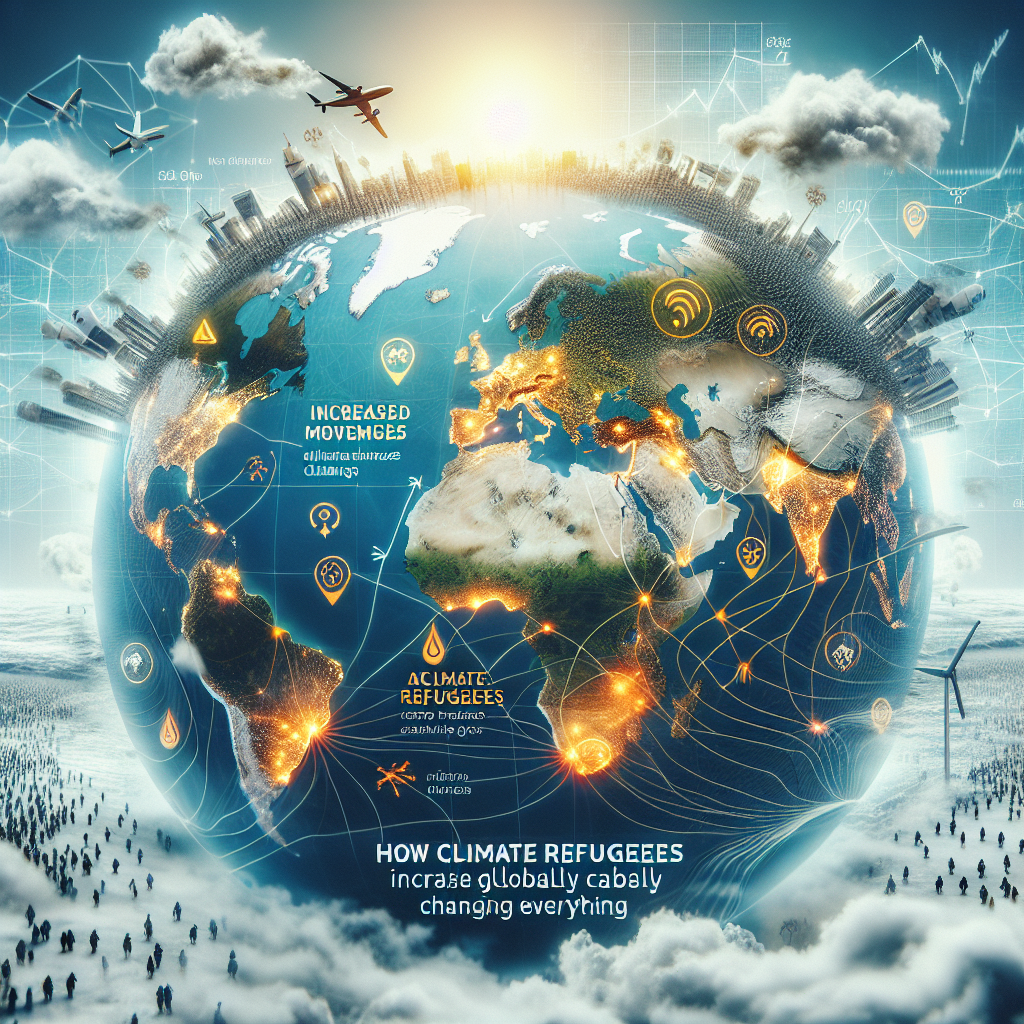As climate change wreaks havoc across the globe, a new challenge emerges: an influx of ‘climate refugees’. In this comprehensive investigation, we delve deeper into how this demographic shift is revolutionising the real estate landscapes around the world.
The Investigation Begins
Climatic extremes are forcing people to leave their homelands. The surge in numbers has brought forth a profound transformation not only socio-culturally but also economically; with specific reference to property markets worldwide.
Following the Money Trail
An increasing demand for housing among these displacement victims is instigating shifts in global property investments. Investors are looking at regions previously considered undesirable due to socio-economic reasons but now becoming habitable as climatic conditions worsen elsewhere.

Key Documents Revealed
A number of classified reports obtained from leading real estate firms reveal that refugee-driven requests have led to substantial diversification within portfolios. Investments are spanning across nations offering asylum — creating a worldwide web of financial flows.
Whistleblower Testimony
An anonymous source, with ties to notable investment companies, shared records illustrating this paradigm shift in capital distribution patterns corresponding with periods marked by significant climatic events such as wildfires or floods.
Corporate Response
— Anonymous Real Estate Firm
This shared sentiment indicates corporations acknowledging and adapting strategies accordingly, implying a newly emerging market reality.

Regulatory Implications
The sudden surge in real estate activities due to the refugee influx has global regulatory bodies under pressure. There are calls for new protocols and legislations governing these investments – ensuring ethical practices while preventing exploitation.
Legal Consequences
If not addressed adequately, we may foresee legal entanglements related to property rights, ownership disputes and fair distribution of resources among indigenous communities versus incoming refugees.
Public Outcry
Activists argue that this ‘capitalist advantage-taking’ is unfair on displaced victims facing crisis situations. Public sentiment grows stronger for regulations safeguarding climate refugees from property scams or unruly price inflations often seen during periods of high demand and low supply.
The real estate industry appears divided. While there’s profit-making potential, there also exist sentiments about assuming responsibility in these times of environmental and human crises.
Lessons LearnedThe intertwining strands of climate change, displacement, and global property markets have illustrated how complex our world’s problems are. Rather than viewing these as isolated incidents,the solution might lie in acknowledging their interconnectedness – leading to systemic changes that address all facets simultaneously.

